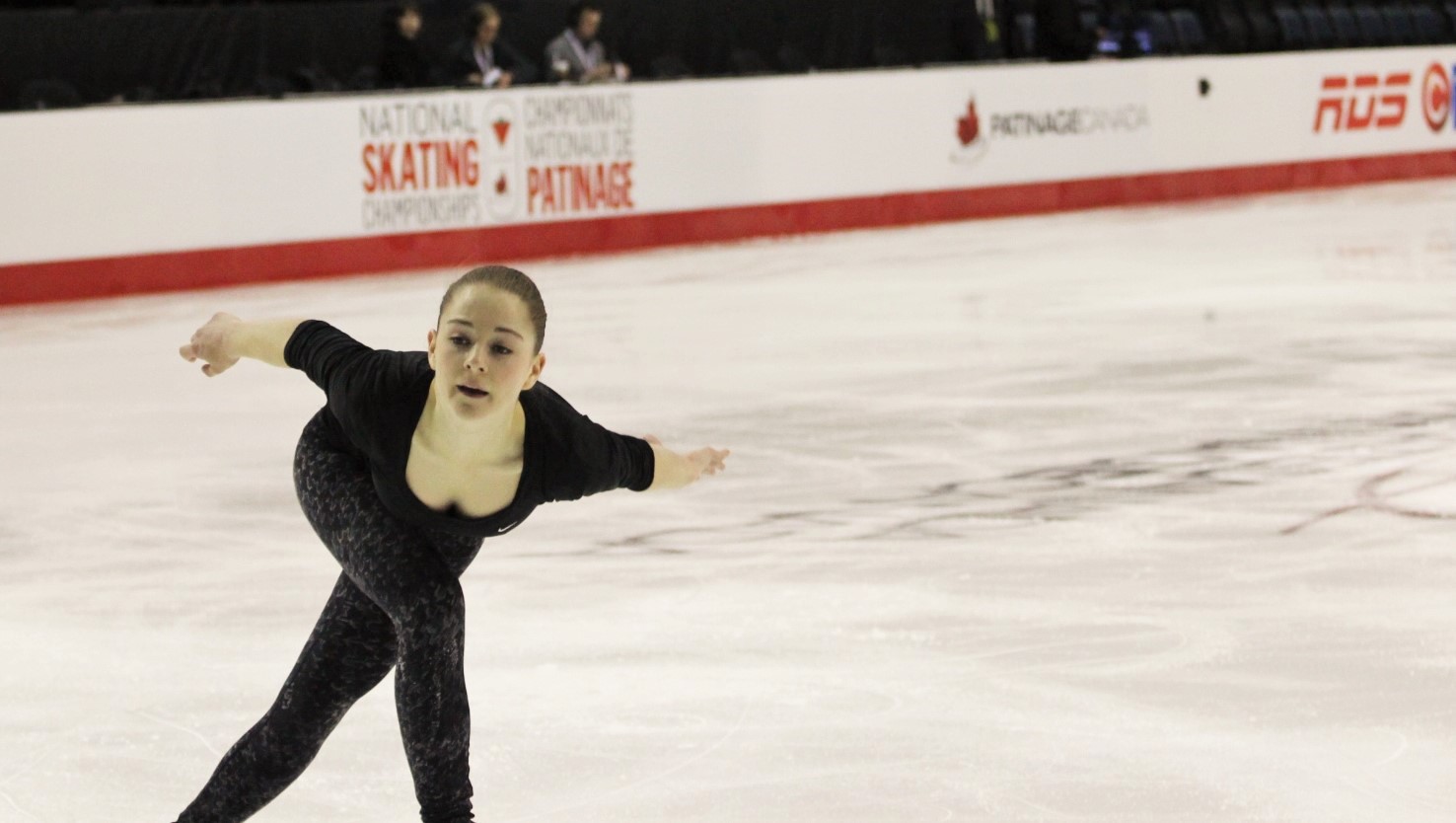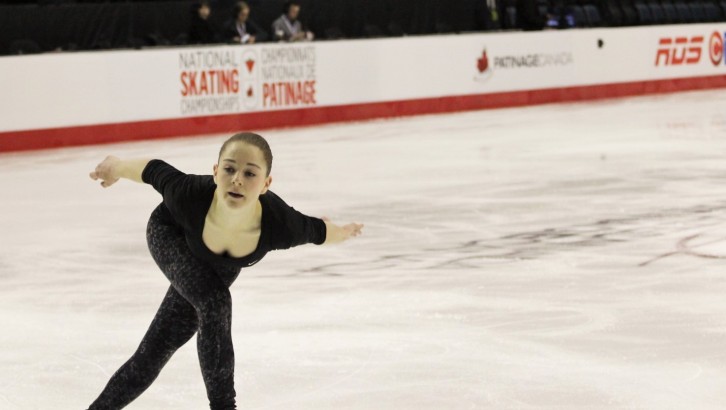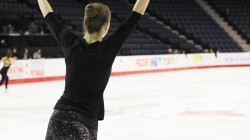Training
Elite N.S. skaters — they train in central Canada
Halifax is hosting the National Skating Championships this week, but the province is producing few elite skaters

caption
Walmsley performing her long program in practice
caption
Walmsley performing her long program in practiceStephanie Walmsley is excited to be back home competing at the Canadian National Skating Championships in Halifax this week.
“It feels awesome. I get the home crowd and my family can come watch. It’s great,” she says.
But the Halifax native says she wouldn’t be competing at this level if she hadn’t left Nova Scotia.
“I feel like there’s just not enough ice and resources put into skating in Nova Scotia,” she says.
A quick glance down the start list shows an alarming statistic. Of about 250 skaters competing in Halifax this week, only three are representing Nova Scotia.

caption
Walmsley looks across the ice before starting a new training move.Gina Cipriano, originally from West Palm Beach, Florida, and Bradley Keeping-Myra from Dartmouth, N.S., came tenth in the Junior Ice Dance category earlier in the week, and Walmsley begins her competition in the Senior Women’s category Friday afternoon. But despite representing Nova Scotia, none of the athletes are based in the province.
Limited resources
Walmsley took up skating while living in Dartmouth at the age of seven, but moved to Toronto when she was 14 for better access to coaching and facilities.
Cipriano and Keeping-Myra currently train in Montreal.
“To do something with your skating, I think it’s necessary to move away,” says Keeping-Myra.
Jill Knowles, executive director at Skate Canada Nova Scotia, says part of the problem is the small number of skaters. She gives the example that Québec has about 200 pre-novice women, while Nova Scotia has only 20. She also says ice time and quality coaching are scarce.
Knowles says that in the big skating cities like Toronto, Montreal and Vancouver, “many, many coaches can make a living teaching skating because there are so many rinks with lots of ice time available. In Nova Scotia that is a very difficult thing to do.”
Better training atmosphere
In addition to the resources, a lack of top-level competition is hurting skating in Nova Scotia.
“The atmosphere is also better. It’s more competitive in central Ontario. You see that in competitions too,” says Walmsley, who adds that she had a top-level coach in Toronto and now trains in Hamilton, where she is studying life sciences.
[idealimageslider id=”6705″]
Out of 15 pairs in the Junior Ice Dance category, four came from the same training group in Montreal as Cipriano and Keeping-Myra.
Knowles concedes that it was necessary for the junior pair to leave the province to further their skating careers, saying, “They need to have other dancers on the ice to push them to be better, so they had to go away.”
Plenty of talent
But there is hope for skating in Nova Scotia. Keeping-Myra feels the key is to change the way the top athletes in the province train by making an elite group that can push each other to reach a higher standard.
“There’s lots of talent in Nova Scotia,” he says. “The only thing that’s missing is getting that training environment where all the high-level athletes – all the high-level skaters in Nova Scotia – train together.”
Knowles hopes that hosting the national championship for the first time since 2007 will help boost participation.
“If we can increase the numbers at the grassroots level, then hopefully the numbers will increase for our competitive skaters as well,” she says.
Good performances
Cipriano and Keeping-Myra performed well at the competition this week and were happy with how they skated, earning personal best marks in both the short dance and free dance.
Walmsley is looking forward to her competition.
“I think it will be good. I felt ready today,” she says.
The main competition begins at lunchtime on Friday, and will culminate Saturday evening. There will be several World Champions and Olympic medallists on show.
A brief history of Canadian skating

